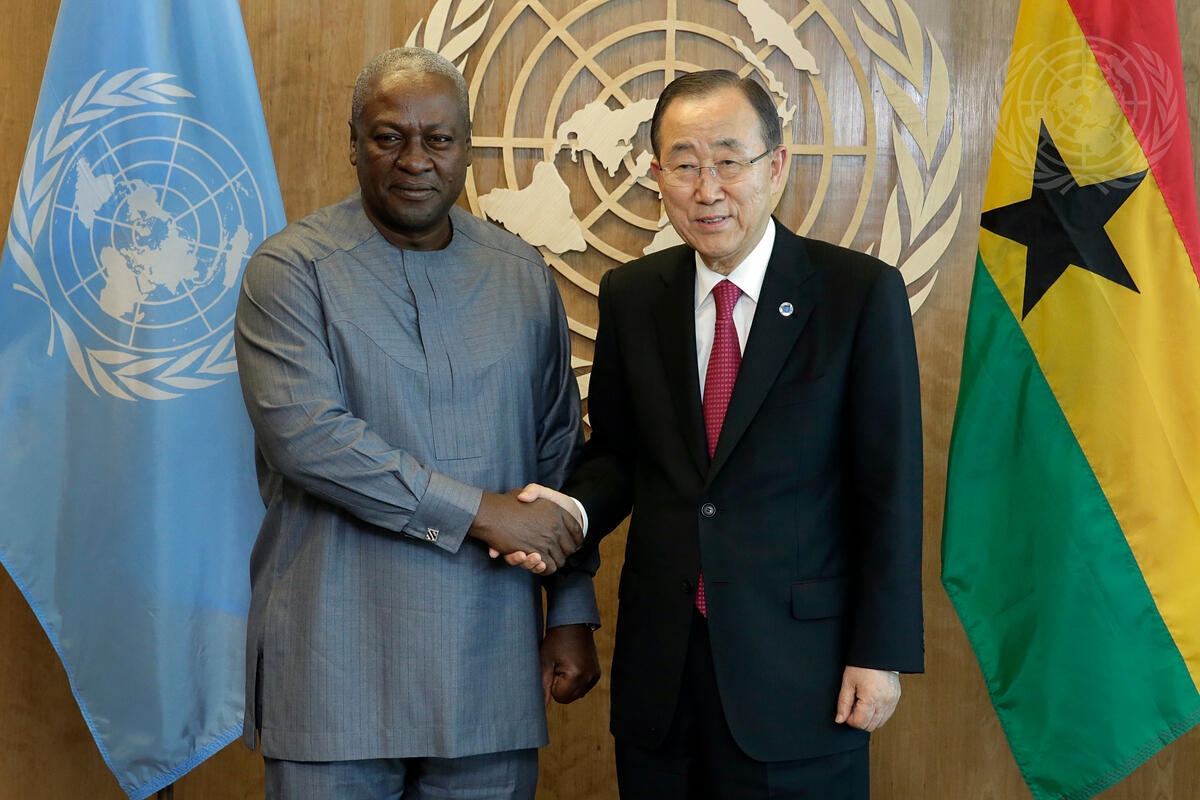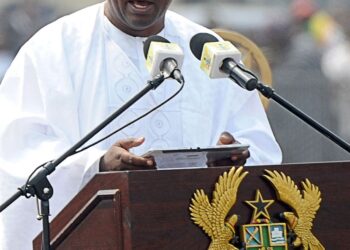When President John Dramani Mahama strode onto the podium at the 80th United Nations General Assembly in New York in September 2025, the atmosphere shifted.
This was not merely another African president delivering a ceremonial address, it was a leader speaking with the confidence of a nation on the rebound and with the conviction of a continent long sidelined in global decision-making.
His words were carefully measured, yet they carried the urgency of a survival call, both for Ghana’s future and for the very relevance of the United Nations itself.
To fully appreciate Mahama’s boldness, it is important to see his speech as part of a historical tradition. In September 1960, Kwame Nkrumah used the UN stage to declare that the independence of Ghana was meaningless unless linked with the total liberation of Africa (UN General Assembly, 15th Session, September 23, 1960, UN Official Records). Nearly four decades later, in 1999, South Africa’s Thabo Mbeki told the 54th Assembly that the UN risked irrelevance unless it adapted to globalization and gave developing nations a fairer voice (UNGA, 54th Session, September 20, 1999, UN Press Release GA/9593).
In 2015, Jacob Zuma took the same stage to stress that Africa’s one billion people remained shut out of permanent membership of the Security Council (UNGA, 70th Session, September 29, 2015, UN Meeting Coverage & Press Releases). More recently, in 2023, Ghana’s Nana Akufo-Addo together with Namibia’s Hage Geingob and Angola’s João Lourenço lamented at the 78th Assembly that global finance was structured against Africa and demanded urgent reform (UNGA, 78th Session, September 20, 2023, UN Press Release GA/12551).
Mahama’s own address picked up these threads but tied them directly to Ghana’s lived experience, transforming frustration into a credible case for action.
What made his speech compelling was that it was backed by real progress at home.
According to the Ghana Statistical Service, inflation fell to 11.5 percent in August 2025, the lowest in almost four years, with food inflation dropping to 14.8 percent and non-food inflation to 8.7 percent (GSS Report, August 2025; Graphic Online, 2025).
The Bank of Ghana has stabilized the cedi and maintained the policy rate at 28 percent in May 2025 to hold these gains (BoG Monetary Policy Report, May 2025). In addition, the government’s ambitious 24-Hour Economy policy has begun to stimulate productivity and job creation across multiple sectors (Government of Ghana, Policy Brief, June 2025).
These hard numbers gave Mahama credibility because they proved Ghana was not asking for help while standing still, it was moving forward.
This narrative of resilience amplified his words and earned the attention of investors, policymakers, and global media.
For Ghana, the benefits of this UN appearance are both tangible and symbolic.
Firstly, it reinforced international confidence in Ghana’s economic recovery, a confidence that directly influences investment flows. The World Bank’s Africa’s Pulse (April 2025) notes that investor decisions in Africa are strongly shaped by political credibility and leadership presentation.
By showcasing stability and reforms, Mahama made Ghana more attractive to foreign direct investment, particularly in renewable energy, digital services, agribusiness, and infrastructure.
The UNCTAD World Investment Report 2025 already lists Ghana among Africa’s most promising destinations for greenfield investments, with projections of over $3 billion in inflows by 2026 if current reforms are sustained.
Secondly, Ghana’s diplomatic standing has been strengthened. By boldly demanding Africa’s place in Security Council reform, Mahama positioned Ghana as a continental voice of reason, opening doors for leadership roles in AU and UN committees. The African Union Commission’s September 2025 briefing described his address as “a rallying point for reform,” underlining Ghana’s rising profile as a diplomatic broker. This could enhance Ghana’s chances of securing future leadership positions in international organizations, giving the country greater influence over policy directions that affect trade, climate financing, and security.
Thirdly, the speech renewed Ghana’s emotional and financial connection with the African diaspora. By invoking the horrors of the transatlantic slave trade and linking it to present-day economic injustice, Mahama strengthened the appeal of initiatives such as “Beyond the Return.”
The Ministry of Tourism’s 2024 policy update already shows that diaspora engagement has generated more than $3.3 billion in investments since 2019, covering real estate, hospitality, and cultural industries.
With Mahama’s bold moral appeal, this flow is likely to deepen, boosting foreign reserves and creating jobs in tourism and allied industries.
Fourthly, the address boosted national morale. At a time when ordinary Ghanaians have endured hardships from inflation and currency instability, hearing their leader command international respect reassures them that sacrifices are yielding recognition. This intangible benefit is often underestimated, yet it matters greatly. Political scientists argue that perception precedes progress, and Mahama’s confident performance projected an image of Ghana regaining its rightful place on the global stage. Such confidence helps to stabilize domestic politics and can translate into greater consumer and business optimism, both of which are critical for economic recovery.
Fifthly, the speech gave Ghana an edge in climate and development negotiations. By aligning Ghana’s recovery story with Africa’s demands for climate justice and equitable financing, Mahama created an opening for Ghana to attract more resources from the Green Climate Fund and similar initiatives. According to UNDP (Climate Finance Update, July 2025), countries that link their national reforms to global climate justice narratives tend to receive higher allocations.
Ghana, therefore, stands to benefit directly from Mahama’s framing of its progress as a model deserving support.
Beyond these gains, Mahama’s speech contained a sobering warning to the world’s superpowers. He reminded them that Africa’s marginalization is not just unfair, it threatens the survival of the UN itself.
His words came against the backdrop of disillusionment in the Sahel. Burkina Faso, Mali, and Niger formally withdrew from ECOWAS on January 29, 2025, citing sanctions, perceived bias, and the UN’s inability to respond to their insecurity (ECOWAS Press Release, January 29, 2025; BBC Africa, January 28, 2025; Al Jazeera, January 29, 2025).
Their move reflects a deeper crisis of trust. When institutions are slow and unresponsive, nations look elsewhere, and the UN risks losing members to alternative alliances. Mahama’s call for reform was therefore not just advocacy, it was a survival guide for the UN.
The lesson is clear. If the United Nations continues to ignore Africa’s demands for justice, inclusivity, and fairness, it will gradually lose legitimacy.
Ghana, through Mahama’s intervention, has not only pushed for reform but also carved out gains in investment credibility, diaspora ties, diplomatic influence, climate finance leverage, and national pride.
For the superpowers who dominate the UN, his words should serve as a reminder that Africa is no longer content to sit on the sidelines.
And as the African proverb wisely says, when the drums change, the dancers must also change their steps.
If the UN refuses to adapt, it risks dancing out of rhythm with the very nations it was created to serve.
Written by Curtice Dumevor, Public Health Expert and Social Analyst, and Edzorna Francis Mensah, Journalist and Public Policy Analyst





































